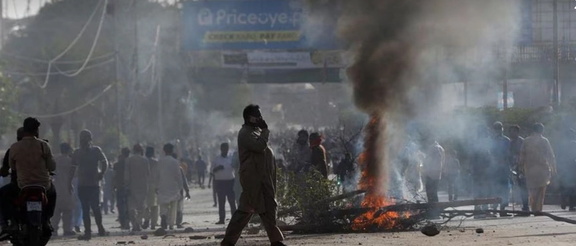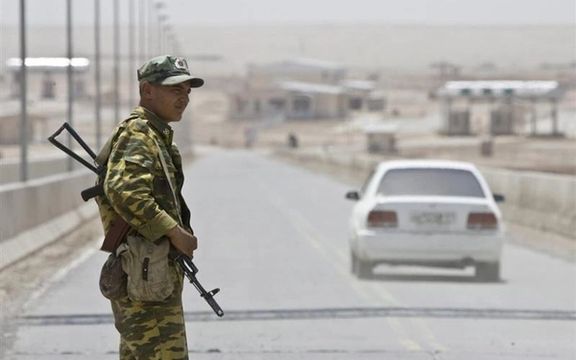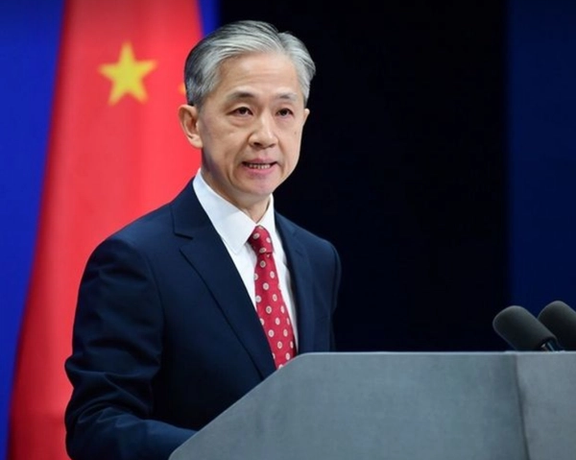Even Afghans have not been left out of the consequences of trends and developments inside Pakistan.
There is a general belief in Afghanistan that Pakistan has benefited more from the turmoil and transitional nature of circumstances in Afghanistan. Perhaps for this reason, Afghan citizens pay special attention to domestic trends in Pakistan, and sometimes in their hearts, they do not seem to be sad with the negative developments in Pakistan.
The arrest of Pakistan’s former prime minister, Imran Khan, and the mass protests across Pakistan, which in many cases has turned violent particularly with the protesters storming the Pakistan army headquarters (GHQ) in Rawalpindi, one can easily understand the depth of the political crisis in Pakistan. Zalmay Khalilzad, the former US special envoy for Afghanistan, has warned about Pakistan’s fundamental state institutions falling into a deep chaos.
The developments and unrest unfolding in Pakistan seem to have at least five major impacts on Afghanistan:
Firstly, the consequence of Pakistan's unrest for Afghanistan is economic. As the protests and violence mainly have taken place in areas that border Afghanistan, the export and import chain between the two countries might be impacted severely.
Secondly, the unrest and political crisis in Pakistan might increase instability on the Afghan side of the border. Most of the protesters who have appeared on the streets against Shehbaz Sharif's government and the Pakistani army and in support of Imran Khan are Pashtuns, mainly from tribal areas bordering Afghanistan. This wave of instability on the bordering areas, could significantly increase the movement of armed groups across the border into Afghanistan.
These armed groups consider the Taliban as their strategic supporter and ally, and they expect that, as they helped the Taliban during the twenty years of their insurgency against the western coalition and the Afghan government, the group will also actively and seriously support these militants in these difficult days instead of adopting a neutral policy.
Thirdly, the current instability in Pakistan will probably impact China's economic and political calculations in Pakistan and Afghanistan.
China, in cooperation with Pakistan, has been pushing for ambitious economic initiatives in Afghanistan and through that to other countries in the region, especially into Central Asia. If Pakistan's unrest is not contained quickly, China will face political and even strategic uncertainty in Afghanistan too.
Fourthly, the current unrest in Pakistan might have huge impacts on Afghan refugees particularly those who are on their way towards resettlement to third countries in the West. If Western embassies reduce or suspend consular services in Pakistan due to security concerns, the processing of Afghan asylum applications will be disrupted.
Finally, Pakistan’s army and the two traditional parties in power that represents the interests of Punjab and Sindh elites approach to eliminate Khan from the political spectrum of Pakistan, and this might strengthen the separatist tendencies among the Pashtuns who support Imran Khan.
Khyber Pakhtunkhwa is the traditional base of Pakistan’s Tahreek-e-Insaf (PTI). The failed ruling class and ruling institutions have oppressed and deprived the Pashtuns since the formation of Pakistan.
It seems that the widespread support of Imran Khan in Pakistan is rooted in the deep problems of the country and the failure of Islamabad’s elite in the past decades. Imran Khan's supporters see in him the face of a saviour who can probably save them from the current dire situation.
The strengthening of separatist tendencies can also affect a part of Afghan Pashtuns, who have hoped for separatist movements and challenging the Punjabi and Sindhi elite in Pakistan after the emergence of the Pashtun Tahafoz Movement (PTM) led by people like Manzoor Pashteen.






